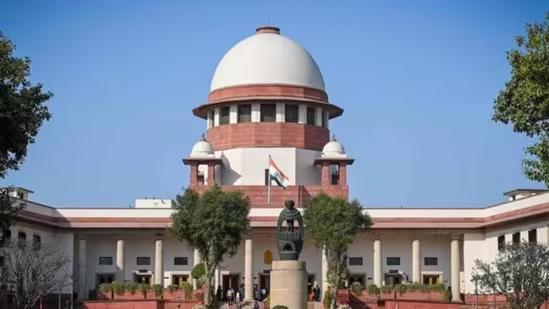
Title: Court Can’t Grant Assent to Bills, Only Gov & Prez Can: Maha to SC
The notion that the courts have the authority to grant assent to bills has been a contentious issue in the country for quite some time. Recently, the Maharashtra government presented its stance on the matter before the Supreme Court, emphatically stating that only the Governor and the President have the power to accord assent to bills, and not the courts. This argument was made during the hearing of a presidential reference regarding whether the court could impose timelines for the Governor and President to deal with bills passed by state Assemblies.
The senior advocate, Harish Salve, representing the Maharashtra government, made the above-mentioned statement while presenting the government’s case before the apex court. He emphasized that the power to grant assent to bills is a constitutional function that is vested in the Governor and the President, and not in the courts. According to Salve, the courts do not have the authority to interfere with the legislative process or to grant assent to bills.
It is essential to understand the context of the presidential reference that led to this hearing. The reference was made by the President of India, who sought the Supreme Court’s guidance on whether it was possible to impose timelines for the Governor and President to deal with bills passed by state Assemblies. The President’s move was seen as a step towards resolving the impasse that often arises when bills are passed by state Assemblies and then sent to the Governor for assent, only to be stalled due to the Governor’s reluctance to grant assent.
The Supreme Court’s response to the presidential reference is crucial, as it has the potential to significantly impact the functioning of the legislative process in the country. If the court were to grant the power to impose timelines on the Governor and President, it could lead to a significant erosion of their powers and autonomy. On the other hand, if the court were to refuse to grant such power, it could lead to a stalemate in the legislative process, as bills may be stalled indefinitely by the Governor’s reluctance to grant assent.
The Maharashtra government’s argument that the courts should not have the power to grant assent to bills is rooted in the Constitution itself. According to Article 114 of the Constitution, the power to assent to bills is vested in the Governor, subject to the condition that the Governor’s assent is required for every bill passed by the state Assembly. Similarly, Article 111 of the Constitution grants the President the power to assent to bills passed by Parliament. The Constitution does not mention the courts having the power to grant assent to bills.
In addition, the Maharashtra government pointed out that the courts have consistently maintained that they do not have the power to grant assent to bills. For instance, in the case of Keshavananda Bharati vs. State of Kerala, the Supreme Court held that the courts do not have the power to declare a constitutional amendment as invalid, but rather the power to declare it as unconstitutional if it is contrary to the Constitution. Similarly, in the case of Union of India vs. Vellore Citizens’ Welfare Forum, the court held that it does not have the power to grant assent to bills, but rather the power to declare them as unconstitutional if they are contrary to the Constitution.
The Maharashtra government’s argument is further bolstered by the fact that the legislative process is a complex and nuanced one, involving multiple stakeholders and institutions. The courts, as an institution, are not equipped to deal with the complexities of the legislative process, which is best left to the elected representatives and the executive. The courts’ role is to interpret the Constitution and ensure that the legislative process is carried out in a manner that is consistent with the Constitution, rather than to interfere with the legislative process itself.
In conclusion, the Maharashtra government’s argument that the courts cannot grant assent to bills and that only the Governor and President have the power to do so is rooted in the Constitution and is supported by precedent. The courts do not have the authority to grant assent to bills, but rather the power to interpret the Constitution and ensure that the legislative process is carried out in a manner that is consistent with the Constitution. The outcome of the presidential reference will have significant implications for the functioning of the legislative process in the country, and it is essential that the Supreme Court makes a decision that is in line with the Constitution and precedent.
Source:






